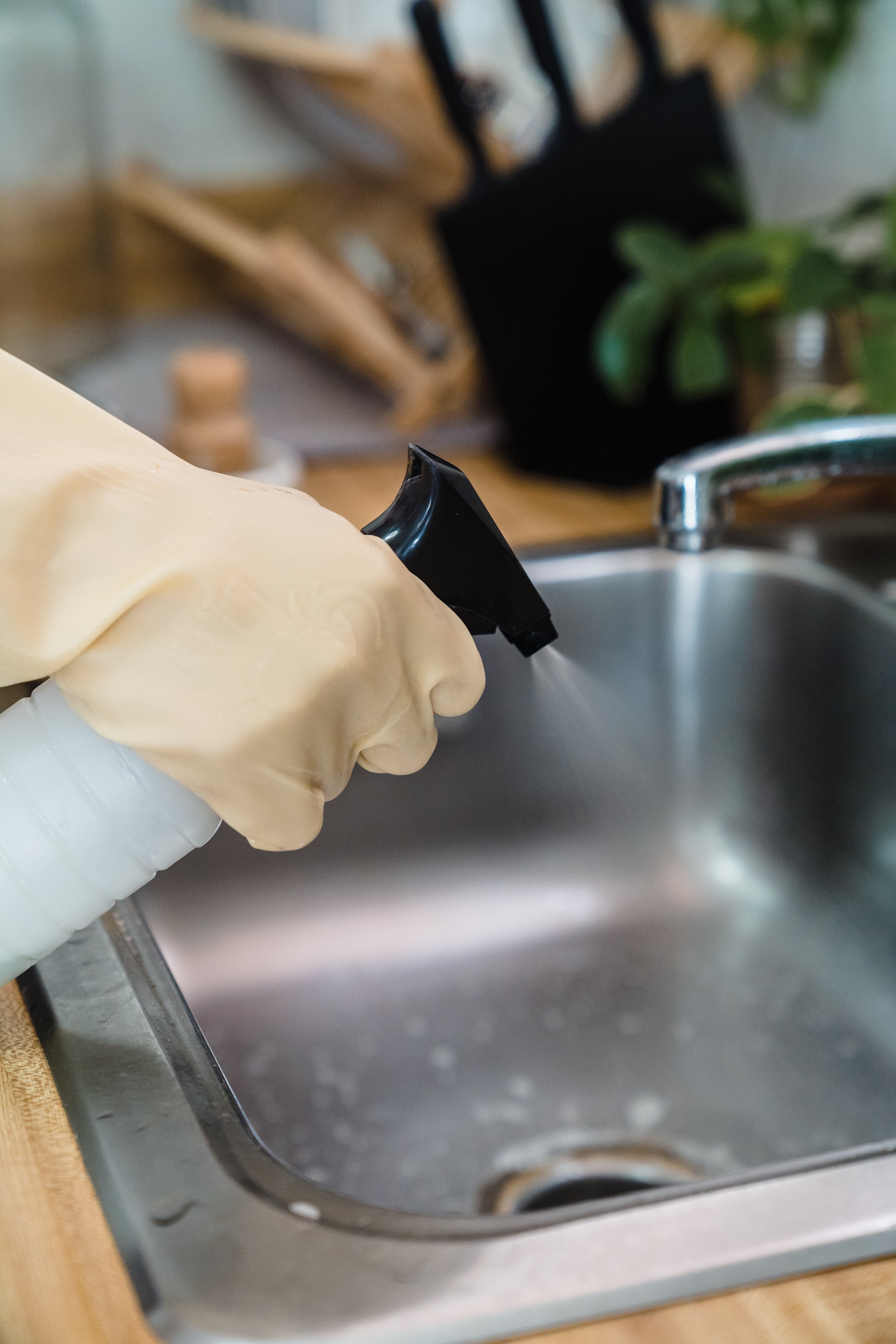Why Does My Kitchen Sink Smell And How To Get Rid Of It?
The kitchen is the best place to relieve all your worries and get rid of stress by cooking. But, when you realise that your kitchen sink smells like rotten eggs, you don’t have that desire and enthusiasm to relax and prepare something to eat.
We know how unpleasant and irritating a smelly kitchen sink can be, especially when you don’t know how to stop drains from smelling and the reasons behind it.
Don’t worry though, since we’re going to look at the common causes of kitchen sink smell and tips to get rid of it. Let’s dive in!
Why Your Kitchen Sink Smells
A smelly kitchen sink can have some primary causes, including:
Accumulated food or debris — Whenever you throw your leftover food in the plughole, food waste frequently clogs drainage pipes and becomes stuck at the bottom of them. Anything else you put in your sink, besides water, has the potential to adhere to the pipes' walls or collect in the U-bend. Over time, this will cause mould and bacteria, which will lead to food decay and foul odour. So, the kitchen sink smells because of the buildup of food waste in your drainage pipes.
For handling food waste, households, hotels, and restaurants implement ‘kitchen waste incinerators’ that burn the food waste at an extremely high temperature until it is reduced to ashes. The latter can be removed after the buildup. The machine is not harmful to the environment as it filters out pollutants and destructs smoke and gases, releasing clean air.
Grimy garbage disposal — Running water is required to regularly clean your garbage disposal and remove food waste. Small food particles can still get lodged in your garbage disposal and cause a drainage system to smell bad. Garbage disposals can become clogged for a variety of reasons, including putting too much food down the disposal, not replacing them when necessary, or not having enough cold water run through the drainage system after usage.
Dirty drains — The kitchen sink smells because of the dirty and greasy drains as well. You probably wash down too much grease and use oil down your kitchen sink drain, which leads to huge clogs and bad odours. Inside the pipeline, the grease hardens and slowly breaks down, which causes a rotten smell.
Blocked plumbing vent — The plumbing vent's role is to provide air in drains so that water flows smoothly all the time. But once it's clogged, it can allow sewer gases to enter your kitchen and produce unpleasant odours. Because of evaporation and leaks, when there is no water in the U-bend, sewer gases can pass through the pipe.
Unused Drain — Your sink drain pipes will begin to smell bad if they are left unused for a while. Every kitchen drain has a trap, and when the P-trap becomes dry, it causes an unpleasant smell. If your sink isn't used frequently, the water that should be running continually in it will evaporate, letting the sewage smell into your house.
How to Clean a Kitchen Sink Drain
Now it’s time to understand how to get rid of the drain smell to make the overall cooking atmosphere pleasant. To begin with, you must find the source of the odour:
An unpleasant odour could be produced by a clogged pipe that prevents water from draining properly.
The kitchen sink smells like rotten eggs because of the sewer gases that escape up the pipe.
The smell of rotten food is produced by decaying fats, food, grease, and oils adhering to the pipe's sides.
And now let’s see some common tips on how to clean the kitchen sink drain.
1. Clean the Sink
First of all, what you may need to do is a deep cleaning of the sink. Over time, food particles can also accumulate on your sink. Any food that you flush down the drain or dishes that you wash could contribute to the unpleasant smell. So, clean and scrub your sink thoroughly.
2. Consider Home-Made Cleaning Solutions
What are some other ways you need to consider when thinking of how to clean the kitchen sink drain? Let’s see the common cleaning solutions you can prepare to get rid of that foul kitchen sink smell:
Boiling water — Using hot water is a simple way to break up some of the food debris in your sink. Bring water to a boil, then gradually pour it down the plughole, wait for 5 minutes, and run the cold water tap. However, remember that hot water will age the plastic, so if you have a PVC pipes, it’s not a good idea to use boiling water for a long period of time.
Baking soda — You only need to turn on the water and dump one tablespoon of baking soda down the drain. You can do this process once a week to keep the sink smelling pleasant.
White vinegar — Fill the plughole with a tiny amount of white vinegar and give it 30 minutes to stand. Then, use hot water to rinse.
Baking soda with white vinegar — What will happen if you combine two effective solutions together? You can pour half a cup (or one) of baking soda, and then one cup (accordingly two cups) of vinegar. This combination will foam up which can stand for some hours. Then, you need to flush the solution down the plughole by pouring boiling water.
Ice cubes with salt and lemon — The food stuck to your garbage disposal blades will be broken down with this mixture. Just take one to two cups of ice cubes, a tablespoon of salt, and half a lemon to prepare the solution. First, pour ice and salt down the garbage disposal, and then squeeze half a lemon down it to get a fresh smell.
3. Inspect the U-bend
Sewer gas cannot escape from the plughole because of the water-filled U-bend, which serves as a barrier. With that in mind, don’t let the water in the U-bend evaporate, which is possible when you go on vacation and don’t run any water. So, to fix this, just fill up the U-bend once you come back.
Also, you can prevent sewer gas smells by checking the U-bend for leaks. Under the sink, look for any drips or moist areas. Contact our licensed plumbers to fix the leaks for you. If there is still a blockage after cleaning, unscrew the U-bend and use a wire brush to clear it out.
You can also prevent the sink odour by:
Keeping fat and grease out of the drain by soaking pans with kitchen towels and then washing them.
Having a qualified plumber frequently inspect the pipes.
Prevent food leftovers from entering your pipes by covering your plughole with a drain screen.
Removing waste build-up and inspecting blockages.
Pour baking soda before going on a vacation.
If you've used all of these remedies and your kitchen sink is still smelling, it's time to call a professional plumber to handle the job and make your house a pleasant place to live. Here at Fluenta, our professional and dedicated professionals are always open to solve all your plumbing issues. Get in touch with us today!


